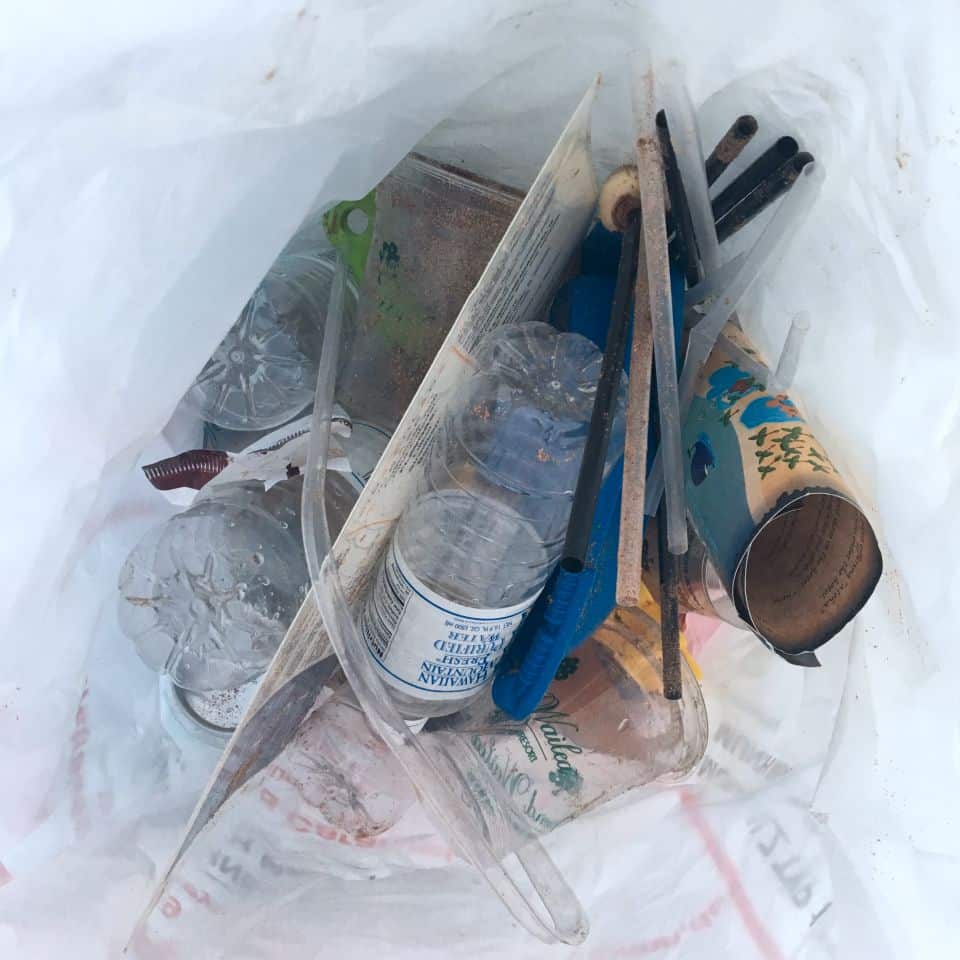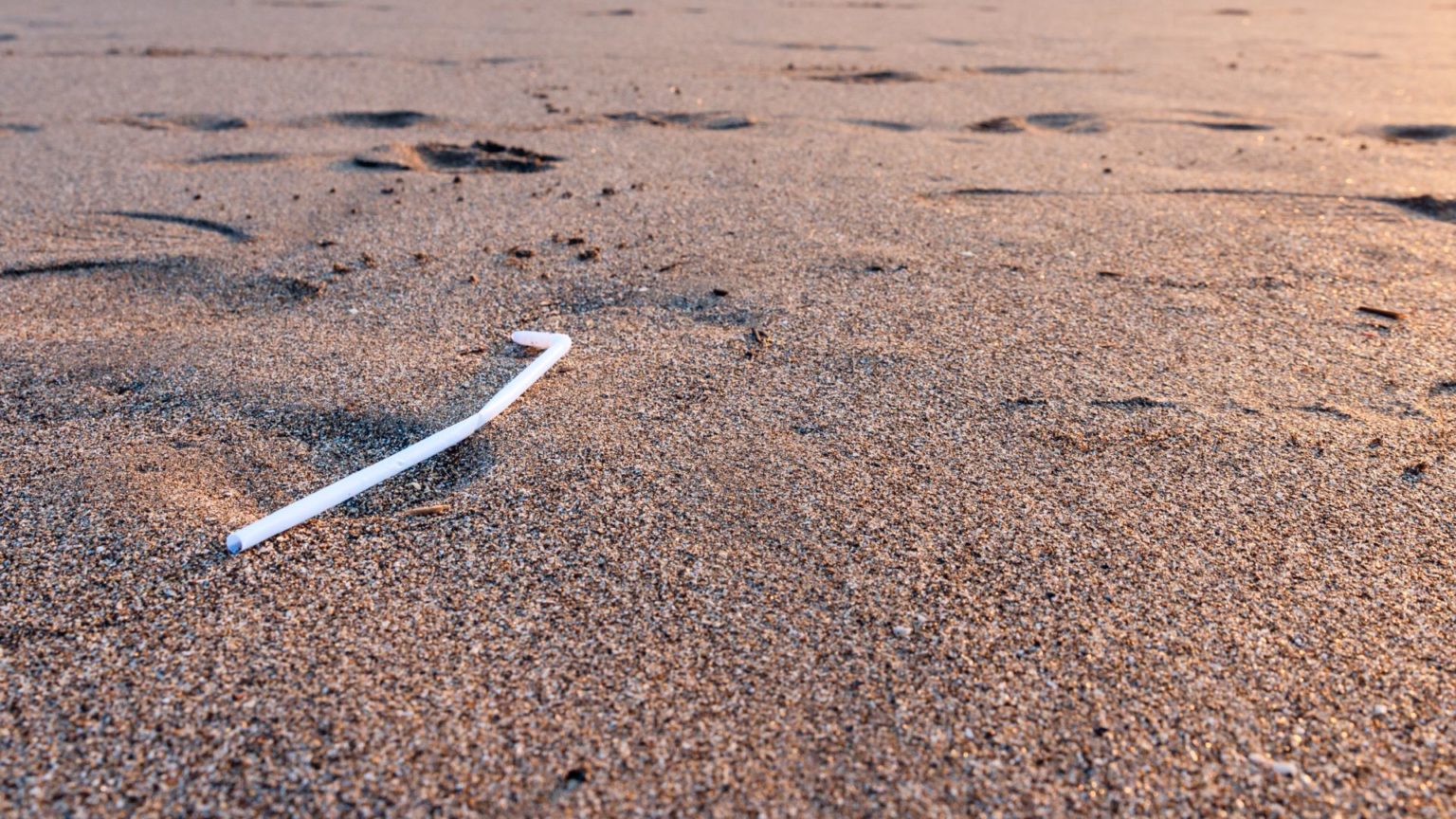
The Problem
Single-use plastics, such as drinking straws, are polluting the world’s oceans at an alarming rate and endangering marine wildlife.
The United States alone contributes 500 million straws daily to this plastic wasteland. That’s enough straws to wrap around the earth 2.5 times each day.

THE LAST STRAW PLEDGE
As a nation, we are responsible for an estimated 242 million pounds of plastic debris entering the ocean annually. Humans are the problem—and the solution. Pledge to reduce single-use plastics and refuse plastic drinking straws today!

500 million straws are used daily in the United States alone— enough to wrap around the earth 2.5x every 24 hours.

Straws and other single-use plastic items comprise the most common marine debris items polluting oceans and endangering wildlife.

Due to their size and weight, plastic straws are hard to recycle or transport to landfills and end up on beaches or in the ocean instead.

By reducing household single-use plastics and making eco-friendly choices, you’re helping to protect vulnerable marine life.

Refuse plastic straws and ask that your local restaurants and businesses ban or dispense them only upon request.

Use plastic alternatives, such as paper, stainless steel, glass and/or bamboo. Encourage others to do the same!
More on The Last Straw
In keeping with our mission to protect the oceans through science and advocacy, The Last Straw raises awareness about the environmental dangers of single-use plastics, specifically plastic drinking straws. Used only once and then discarded, plastic straws pollute marine environments and kill and/or injure the wildlife within.
Take action to turn the tide on plastic pollution; start by refusing a straw. Let them know at your favorite café, restaurant or bar that plastic straws are not allowed at your table or simply say, “No straw, thank you!” and tell them why.
For those who need or want to use straws, more non-plastic alternatives than ever are available in stores and online, including straws made from paper, stainless steel, glass and bamboo.
Pacific Whale Foundation stopped using straws on our PacWhale ecotour vessels in 2015. Our Maui locations and online Ocean Store carry a range of reusable straws, as well as other high quality, eco-friendly products.For more information on our environmental commitment, click here.
Verified Facts & Figures
- 500 million straws are used daily in the United States alone, enough to fill 125 school buses each day (International Coastal Cleanup Report, Ocean Conservancy, 2017)
- Over 8 million tons of plastic enter the world’s oceans every year (Jambeck et al., 2015)
- By the year 2050, scientists project the oceans will contain more plastic than fish (MacArthur et al., 2016)
- 90% of seabirds (Wilcox et al., 2015) and 30% of sea turtles (Schuyler et al., 2013) have been found with plastics in their stomachs. 86% of all turtle species are affected by plastics (Schuyler et al., 2013)
- 80-90% of the world’s marine debris is made from plastic. There is no way to safely remove the vast majority of the plastic already in the ocean (Joint Group of Experts on the Scientific Aspects of Marine Environmental Protection, 2015)
- Plastic straws are one of the top 10 items picked up during beach cleanups worldwide. In the last 25 years, more than 6 million straws have been removed during annual U.S. beach cleanup events (International Coastal Cleanup Report, Ocean Conservancy, 2017)
- Chemicals from plastics can be harmful to our health as well as the health of marine wildlife.
- Plastics contain known carcinogens and endocrine disrupters that cause direct toxicity, even leaching from plastic containers to food (Stover et al., 1996)
- Packaging and containers account for 23% of the waste in America or 39 million tons per year. Less than 14% of plastic packaging actually gets recycled (Environmental Protection Agency, 2010)
- Only certain types of plastic can be recycled, and only a certain number of times before being discarded into the environment (Stover et al., 2010)
- Specific conditions must be present, such as the appropriate oxygen, light and pressure as executed by an industrial composting facility, in order to break down even “biodegradable” or compostable plastics. Plastic does not biodegrade in a landfill, and not all states and not all countries have industrial composting facilities, so even “biodegradable” plastics are discarded like regular trash (United Nations Environment Programme, 2015)
Sources:
Environmental Protection Agency (EPA), 2010. Municipal Solid Waste Generation, Recycling, and Disposal in the United States: Facts and Figures for 2010. United States Environmental Protection Agency Solid Waste and Emergency Response Report, Washington, DC. 12 p.
Joint Group of Experts on the Scientific Aspects of Marine Environmental Protection (GESAMP), 2015. “Sources, fate and effects of microplastics in the marine environment: a global assessment” (Kershaw, P. J., ed.). (IMO/FAO/UNESCO-IOC/UNIDO/WMO/IAEA/UN/UNEP /UNDP Joint Group of Experts on the Scientific Aspects of Marine Environmental Protection). Reports and Studies. GESAMP No. 90, 96 p.
Jambeck, J.R., Geyer, R., Wilcox, C., Siegler, T.R., Perryman, M., Andrady, A., Narayan, R. and Law, K.L., 2015. Plastic waste inputs from land into the ocean. Science, 347(6223), pp.768-771.
MacArthur, D.M, D. Waughray, and M. Stuchtey, 2016. The New Plastics Economy Rethinking the future of plastics. 2016. World Economic Forum. 34 p.
Ocean Conservancy, 2017. International coastal cleanup report 2017. 24 p.
Schuyler, Q., Hardesty, B.D., Wilcox, C. and Townsend, K., 2014. Global analysis of anthropogenic debris ingestion by sea turtles. Conservation biology, 28(1), pp. 129-139.
Stover, R.L., Evans, K., and Pickett, K. 1996. Report of the Berkeley plastic task force. Ecology Center Plastic Task Force, Berkeley, CA. 48 p.
United Nations Environment Programme (UNEP), 2015. Biodegradable Plastics and Marine Litter. Misconceptions, concerns and impacts on marine environments. United Nations Environment Programme (UNEP), Nairobi. 33 p.
Wilcox, C., Van Sebille, E. and Hardesty, B.D., 2015. Threat of plastic pollution to seabirds is global, pervasive, and increasing. Proceedings of the National Academy of Sciences, 112(38), pp.11899-11904.
What You Can Do
You can help keep plastic straws and other single-use plastics out of the ocean by taking the following actions:
REDUCE the amount of single-use plastic in your household and make more eco-friendly choices.
REFUSE to use plastic straws and ask your local restaurants and businesses to ban plastic straws or dispense them only upon request.
USE ALTERNATIVES to plastic straws such as paper, stainless steel, glass and bamboo. Encourage others to do the same.
REUSE plastic products whenever possible.
RECYCLE plastic products whenever possible.
PLEDGE to reduce your consumption of single-use plastics by signing our online form.
SHARE your commitment and stories of pollution solutions with #ReuseOrRefuse.
More Ways to be a Part of the Last Straw Campaign:
- Click here to spread the word to your Facebook friends.
- Add the custom ‘Reuse or Refuse’ photo frame to your Facebook profile or other photos.
- Get a reusable bamboo straw and set of utensils when you make a donation to Pacific Whale Foundation’s Research, Education and Conservation programs. You can also get reusable straws from our Maui Ocean Store locations or online Ocean Store.
- Join us on a beach cleanup or do one on your own to help keep plastic straws and other marine debris off our beaches and out of the ocean.
Resource Kit
Please click on the links below to download and share.
TABLE TENT – prints on 8.5 x 11, folds to 5 x 7
Reusable straws available online:
- Aardvark Straws (paper) https://www.aardvarkstraws.com/
- Eco-Tribe (bamboo) http://www.eco-tribe.com/product/stainless-steel-straws/
- RawNori (stainless steel) https://rawnori.com/collections/cocostraw-stainless-steel-straws
Strawless Ocean Challenge
Challenge your friends and followers on social media through this collaborative campaign by Lonely Whale Foundation.
- Video: ‘A Plastic Ocean’ film trailer
- Video: Sea Turtle with Straw Up Its Nostril (WARNING! Contains graphic content)
